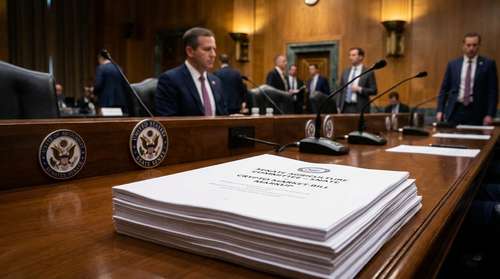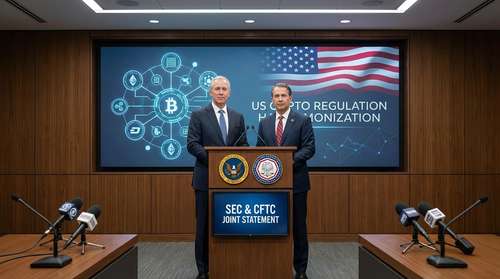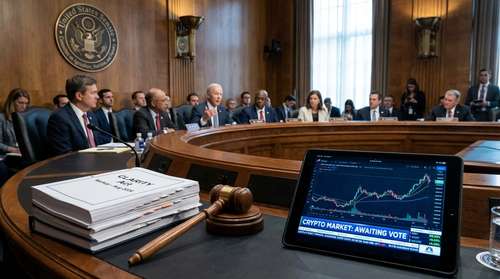The latest turn in the cryptocurrency world has shocked investors and regulators alike. Federal prosecutors are pushing for a 20-year sentence for Alex Mashinsky, the former CEO of Celsius Network, as accusations swirl over a fraudulent scheme that allegedly cost customers nearly $7 billion. It’s a case that has everyone asking: How did it come to this?
While many of us have been busy tracking fluctuations in markets like litcoin, lightcoin, and shiba inu coin, this case reminds us that not all that glitters in the crypto space is gold. Some of these high-flying platforms hide a darker side that eventually catches up with them. The recent developments with Mashinsky’s sentencing are a sober warning about the risks associated with the cryptocurrency industry.
Unraveling the Fraudulent Scheme
Prosecutors believe that Alex Mashinsky orchestrated a scheme that misled customers by promoting the safety of their deposits, while secretly manipulating the CEL token for personal gain. The charges allege that this deceptive behavior ultimately led to massive losses, a legacy of nearly $7 billion. This isn’t just a case about missed investments or volatile market swings—it’s about alleged fraudulent practices that rocked one of the leading platforms in the crypto market.
Imagine expecting a secure place to park your hard-earned money only to find out that the foundation it was built on was nothing but a house of cards. That’s the sentiment many feel as they compare this situation to other recent controversies disclosed on coin marketcap and similar resources. In a realm where each shift in pi coin price and pi network price can stir significant investor sentiment, this alleged fraud stands out as a stark example of abuse of trust.
Critics have stressed that transparency is paramount, and if companies fail to honor that, severe penalties are inevitable. When you see sentencing proposals this serious, it sends a powerful message. People who were once considered pioneers in the crypto revolution now face the full weight of the law, underlining the risks inherent in what many touted as a game-changing industry.
Implications for the Cryptocurrency World
This case might just be the tip of the iceberg when it comes to regulatory scrutiny in the crypto arena. As digital assets continue to draw interest from both retail and institutional investors, regulators are increasingly stepping in to enforce accountability. With Mashinsky in the hot seat, where do we stand as an industry?
It’s not just about Celsius Network. We’re witnessing a broader reckoning in the crypto world. Investors familiar with tracking trends in pi coin, lightcoin, or other assets might begin questioning if their investments are as secure as they once believed. And rightly so, given the scale and gravity of the allegations. Much like cautionary tales in any booming industry, this serves as a reminder that trust is hard-earned and easily lost.
On a personal note, anyone who’s ever dipped their toes into cryptocurrency will likely wonder if this means a fundamental shift in how crypto is governed. The case exposes some vulnerabilities in the system—vulnerabilities that are increasingly being exploited, intentionally or otherwise. It feels as if the industry is at a crossroads, where the need for stringent regulatory oversight is more evident than ever.
The Prosecution’s Case and Legal Battle Ahead
In this high-stakes legal drama, the Department of Justice has promised a thorough investigation and consequent prosecution. Federal prosecutors argue that Mashinsky's actions weren’t just missteps but involved a deliberate manipulation of investor trust. They assert that the fraudulent conduct involved shoddy disclosures and audacious maneuvers to benefit personally at the expense of customers.
When you follow the case developments, it’s clear that this isn’t merely a routine sentencing issue. The prosecutors view it as a landmark case, one that underscores the severity of misusing investor funds in the cryptocurrency space. As the sentencing hearing is set for May 9, many industry watchers are on the edge of their seats, wondering whether this case will catalyze a broader crackdown on crypto misadventures.
There’s a certain irony in how the very freedom that many celebrated in the decentralized world now appears to be its downfall. Defense attorneys might argue the inherent risks of cryptocurrency investment. Still, the magnitude of the alleged deceit in Mashinsky’s case challenges such defenses. It is a scenario where the fundamental promise of safety and transparency in crypto is called into question!
What This Means for Investors and the Future of Crypto
For individual investors, the case is a sobering reminder that crypto markets are not a free-for-all. If you’re keeping an eye on trends like coin marketcap, pi coin price fluctuations, or even emerging assets like shiba inu coin and pi coin, you know that market dynamics can change in the blink of an eye. More than ever, ensuring that your investments are rooted in credible and well-regulated platforms is crucial.
It begs the question, how many investors are prepared for regulatory changes? This case might accelerate calls for increased oversight. With a 20-year sentencing proposal on the table, regulators could be sending a message that fraud in cryptocurrency will be met with stiff penalties. The case may even lead to new compliance standards and may inspire other watchdogs to take a closer look at the operations of similar platforms.
On a broader level, this legal action could turn out to be a turning point. It highlights that despite the excitement surrounding innovations in cryptocurrency and tech like pi coin, the underlying promise of decentralization and security must go hand-in-hand with accountability. Whether you’re investing in traditional assets or keeping an eye on the ever-shifting landscape of crypto, being informed and vigilant is key.
The Path Forward Amid Uncertainty
As the sentencing date looms, conversations among investors and industry stakeholders are becoming increasingly intense. People are discussing the potential domino effect of this high-profile case on the entire crypto ecosystem. With a case involving not only traditional fraud but also a deliberate manipulation of digital tokens, it appears regulatory bodies are not playing around anymore.
Watching this scenario unfold is like witnessing a pivotal moment in a high-stakes poker game—one where the cards hold the future of digital finance. You might even think about the impact on other cryptocurrencies, whether it's litcoin, lightcoin, or even emerging tokens with volatile metrics like pi coin price and pi network price. The potential sentencing of a former CEO for such severe misdeeds might well set a precedent for how seriously the crypto community treats integrity.
This case is a vivid illustration of the delicate balance between innovation and regulation. As the crypto industry matures, stories like this enforce the necessity of robust checks and transparent practices. The DOJ’s move, underscored by the proposed 20-year sentencing, is a clear call for an industry-wide recalibration—one that could serve to protect investors for years to come.
In summary, as the DOJ seeks a substantial sentencing for Alex Mashinsky, it marks a critical chapter in the ongoing evolution of cryptocurrency regulation. It reminds us all that trust, once broken, can lead to monumental consequences in an arena as volatile as crypto. Investors, whether following trends on coin marketcap or keeping an eye on pi coin price, must remain cautious and informed. A new era of accountability might just be on the horizon, and it’s up to the industry to embrace the lessons learned from this landmark case.




